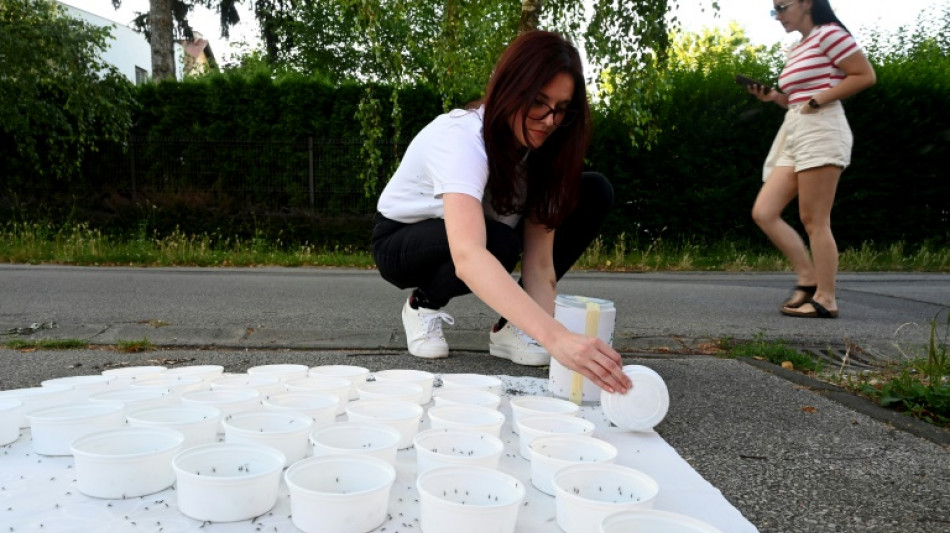
RBGPF
0.8100


Hordes of buzzing but sterile mosquitoes are being let loose in Zagreb as Croatia gets ahead of worries that climate change could bring tropical diseases to the Mediterranean nation.
The release is part of a pilot project focused on eradicating invasive Asian Tiger mosquitoes known for carrying sicknesses like Dengue Fever, Chikungunya and Zika.
The species has appeared to thrive in the country and across the region in recent years due in part to climate change -- with the warmer weather providing fertile ground for the mosquito.
"It's too early to say whether this one will yield results," Zagreb resident Kruno Lokotar told AFP. "But I'm glad that we are not just sticking with spraying."
Croatia's effort centres on a method that uses sterilised male mosquitoes -- which once released into the wild will mate with females and neutralise the potential for future offspring.
The Zagreb project kickstarted in June, when 100,000 mosquitoes were released in a high-risk area with thick foliage where mosquitoes often congregate.
"If we release a sufficient number of sterile males during a certain period in an area, the mosquito population in that area will decrease," Ana Klobucar, a medical entomologist of the Zagreb-based teaching institute of public health who is overseeing the project, told AFP.
The plan is rooted in the Sterile Insect Technique (SIT) -- a method that has been used for decades across the world to combat various harmful insects, but is still being tested for its effectiveness against mosquitoes in urban areas.
Croatia started using it for mosquitoes last year in northern Istria peninsula.
This year a total of 1.2 million specially treated insects will be released there over a three-month period, entomologist Nediljko Landeka of the regional public health institute told AFP.
- Climate change impact -
The insects -- which have been rendered sterile after exposure to gamma rays -- are sourced from a laboratory in Italy, and shipped 500 kilometres (310 miles) to Croatia in special boxes.
Once received, Klobucar and her assistants carefully remove plastic bowls with the insects from cardboard tubes before they are later dispersed in local gardens in the target area.
Croatia's programme coincides with increasingly dire warning from experts that global warming could make swaths of Europe more vulnerable to infectious diseases spread by mosquito bites.
The presence of the Asian Tiger mosquito in Croatia was first recorded in 2004 after arriving in Europe in the late 1970s, with experts suggesting they made the journey in used tyres that arrived in Albania from China.
The breed has now spread to more than a dozen European countries, with the Mediterranean region having been hit the hardest, according to official figures.
As the mercury rises across the globe, the Asian Tiger mosquito is moving further north including in areas that were considered too cold for the species to thrive, including in Switzerland and Germany.
"We are afraid that together with the species, viruses could also easily adapt in the future to new environments," warned Greek entomologist Antonios Michaelakis.
Michaelakis -- who is also a researcher at the Benaki Phytopathological Institute in Athens -- has been instrumental in sharing his experiences from a programme in Greece with his Croatian counterparts.
In Greece in 2019, the project succeeded in slashing the population of Asian Tiger mosquitoes by 90 percent, he told AFP.
During a trial of the technique last year in Croatia's Istria, up to 14 percent of mosquito eggs in the area were found to be sterile and jumped to nearly 60 percent this year, Landeka added.
F.Carrillo--TFWP